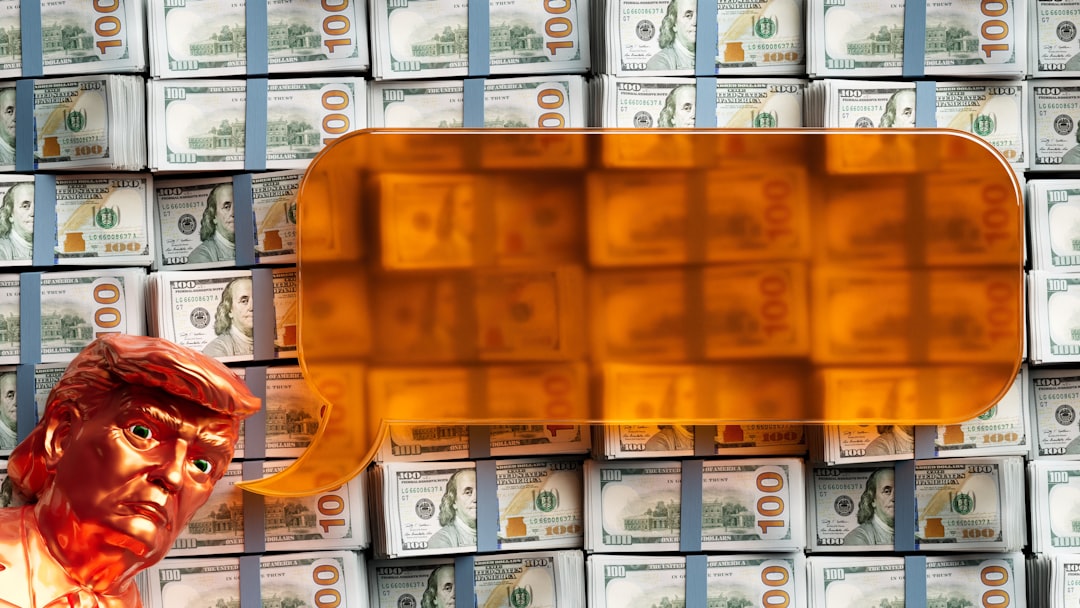Taiwan's Government Unveils Massive NT$410 Billion Bill to Counter US Tariffs and Bolster Resilience
Premier Cho Jung-tai's Initiative Aims to Shield Economy and Strengthen National Security

In a move to fortify its economy and enhance national security, Taiwan's Cabinet, under Premier Cho Jung-tai (卓榮泰), has proposed a substantial NT$410 billion (US$12.63 billion) special bill. This initiative is primarily designed to mitigate the potential impacts of the US tariffs and to bolster Taiwan's resilience in the face of international developments.
Premier Cho Jung-tai met with lawmakers from both the ruling and opposition parties to garner support for the bill. The funding for this extensive package will be drawn from budget surpluses accumulated in previous years, ensuring that the government's debt will not increase through additional borrowing, as confirmed by Cho.
The allocation of funds is multifaceted. A significant NT$93 billion will be dedicated to industry and employment support, a further NT$150 billion will be channeled towards improving national security resilience, and NT$167 billion will be allocated for social welfare initiatives. The social welfare measures include subsidies to offset electricity costs and injections into insurance funds, according to Cho.
The support for industries will include NT$12 billion in interest subsidies for trade financing, NT$5 billion for expanding small business loan guarantees, and an additional NT$25 billion for research-and-development grants for businesses, as detailed by Cho.
The national security component of the budget will finance the construction of new patrol vessels to counter Chinese maritime activities, establish new storage and backup facilities for essential supplies, and upgrade Taiwan’s cybersecurity defenses. Furthermore, a budget of NT$100 billion will be set aside to subsidize electricity costs absorbed by state-owned Taiwan Power Co (Taipower, 台電) over the past three years, Cho said.
However, the proposal has already sparked debate among political factions. Chinese Nationalist Party (KMT) caucus whip Fu Kun-chi (傅?萁) expressed support for the measures against US tariffs but raised concerns about the limited portion of the funding directly linked to trade measures. Fu suggested that the subsidies for Taipower could be proposed separately. KMT caucus secretary-general Wang Hung-wei (王鴻薇) questioned the considerable expansion of the act's budget, suggesting that industry assistance growth was disproportionately small compared to the overall increase.
Taiwan People’s Party (TPP) caucus whip Huang Kuo-chang (黃國昌) voiced his party's full support for financial assistance to businesses and workers but criticized the government for lacking a detailed impact assessment. Deputy caucus convener Chang Chi-kai (張啟楷) argued that the budget contravened fiscal discipline by including unrelated projects in an urgent bill.
Premier Cho Jung-tai has emphasized the government's commitment to negotiating with the US to secure tariff rates comparable to those imposed on competitor countries, while simultaneously safeguarding Taiwan's industrial competitiveness and consumer habits. Democratic Progressive Party caucus chief executive Rosalia Wu (吳思瑤) expressed the party's full support for the special budget, underscoring its importance for the public good, industry, and Taiwan's protection.
Other Versions
El Gobierno de Taiwán presenta un enorme proyecto de ley de 410.000 millones de NT$ para contrarrestar los aranceles de EE.UU. y reforzar su capacidad de resistencia
Le gouvernement taïwanais dévoile un projet de loi massif de 410 milliards de dollars taïwanais pour contrer les tarifs douaniers américains et renforcer la résilience du pays
Pemerintah Taiwan Meluncurkan RUU Besar-besaran senilai NT$ 410 Miliar untuk Melawan Tarif AS dan Meningkatkan Ketahanan
Il governo di Taiwan presenta un'ingente proposta di legge da 410 dollari taiwanesi per contrastare i dazi statunitensi e rafforzare la capacità di ripresa.
台湾政府、4,100億台湾ドルの巨額法案を発表 米国の関税に対抗し回復力を強化
대만 정부, 미국 관세에 대응하고 회복력을 강화하기 위해 410억 대만달러 규모의 대규모 법안 발표
Inilabas ng Gobyerno ng Taiwan ang Malaking NT$410 Bilyong Panukala upang Labanan ang Taripa ng US at Palakasin ang Katatagan
Правительство Тайваня представило масштабный законопроект на 410 миллиардов тайваньских долларов для противодействия американским тариф�
รัฐบาลไต้หวันเปิดตัวร่างกฎหมายมูลค่ามหาศาล 410 พันล้านดอลลาร์ไต้หวัน เพื่อตอบโต้ภาษีนำเข้
Chính phủ Đài Loan công bố dự luật 410 tỷ đô la Đài Loan mới để đối phó thuế quan Mỹ và tăng cường khả năng phục hồi
